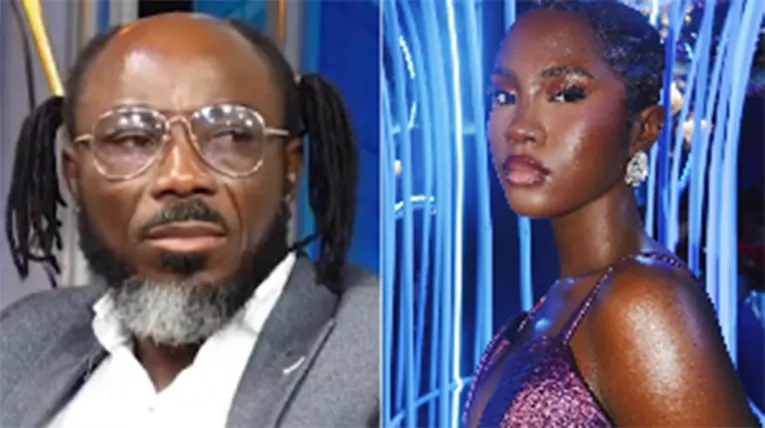This incident involving Ghanaian singer-songwriter Cina Soul and actor Big Akwes highlights a disturbing trend of online harassment and the potential for real-world consequences stemming from inflammatory rhetoric on traditional media platforms. The situation began in April 2025 when Big Akwes publicly criticized Cina Soul’s attire in a promotional video for her album “Did I Lie?” His comments, aired on Max TV, were widely considered body-shaming and inappropriate, sparking significant backlash and prompting an apology from the television station. However, Big Akwes remained defiant, refusing to retract his statements and instead doubling down on his critique. This initial incident, while unsettling, was primarily confined to public commentary and criticism, albeit of a personal and potentially damaging nature.
The situation escalated dramatically when Big Akwes appeared on Bryt TV in a “Kiss-Marry-Kill” segment. Presented with the choice between actresses Vivian Jill and Cina Soul, he chose to marry Vivian Jill and, shockingly, stated he would “kill” Cina Soul. His explanation went beyond a hypothetical game scenario, veering into graphic and disturbing territory. He described a scenario involving summoning Cina Soul using a “magic mirror,” stabbing her repeatedly, and drinking her blood. These statements, delivered on a public television platform, transformed the earlier criticism into a credible threat, raising serious concerns about Big Akwes’ mental state and the potential for him to act on his violent pronouncements.
Cina Soul’s response reflects the understandable fear and concern generated by Big Akwes’ televised threats. She took to social media platform X (formerly Twitter) to share the video clip of Big Akwes’ statements and to express her alarm. She acknowledged her initial reluctance to engage with Big Akwes, likely hoping to avoid further confrontation or to lend credence to his earlier remarks. However, the escalating nature of his pronouncements, coupled with the very public forum in which they were delivered, left her feeling genuinely threatened and compelled to seek intervention. Her post directly tagged the Ghana Police Service and the Ministry of Communications, indicating a desire for official recognition and action regarding the threats made against her.
The public reaction to Big Akwes’ statements underscores the gravity of the situation. Many online commentators expressed outrage and concern, echoing Cina Soul’s fear and condemning the violent rhetoric. This public outcry highlights a growing awareness of the potential for online and on-air harassment to escalate into real-world violence. It also reinforces the need for media platforms to take responsibility for the content they broadcast and to actively prevent the dissemination of harmful and threatening rhetoric. The silence from Bryt TV following the broadcast of Big Akwes’ statements is particularly concerning, suggesting a lack of oversight and a failure to address the dangerous nature of the content aired on their platform.
The silence from the Ghana Police Service, at least initially, added to the sense of unease surrounding the situation. The absence of a public statement or indication of an investigation leaves Cina Soul and the public wondering whether appropriate action will be taken to address the threats made. This inaction potentially sends a message that such behavior is tolerated, which could embolden others to engage in similar acts of online intimidation and harassment. The public’s anticipation of a response from law enforcement underscores the importance of holding individuals accountable for threatening behavior and demonstrating a commitment to ensuring the safety and well-being of those who are targeted by such threats.
This incident involving Cina Soul and Big Akwes goes beyond a simple celebrity feud. It serves as a microcosm of larger societal issues related to online harassment, violent rhetoric, and the responsibilities of media platforms in preventing the spread of harmful content. The situation also highlights the crucial role of law enforcement in taking credible threats seriously and taking appropriate measures to ensure the safety of those targeted. The public’s response and the ongoing attention to this case suggest a growing demand for accountability and a rejection of the normalization of violent and threatening behavior, whether online or in traditional media. The hope remains that this incident will serve as a catalyst for change, leading to greater vigilance by media outlets, more proactive responses from law enforcement, and a broader cultural shift towards creating a safer and more respectful online environment.














